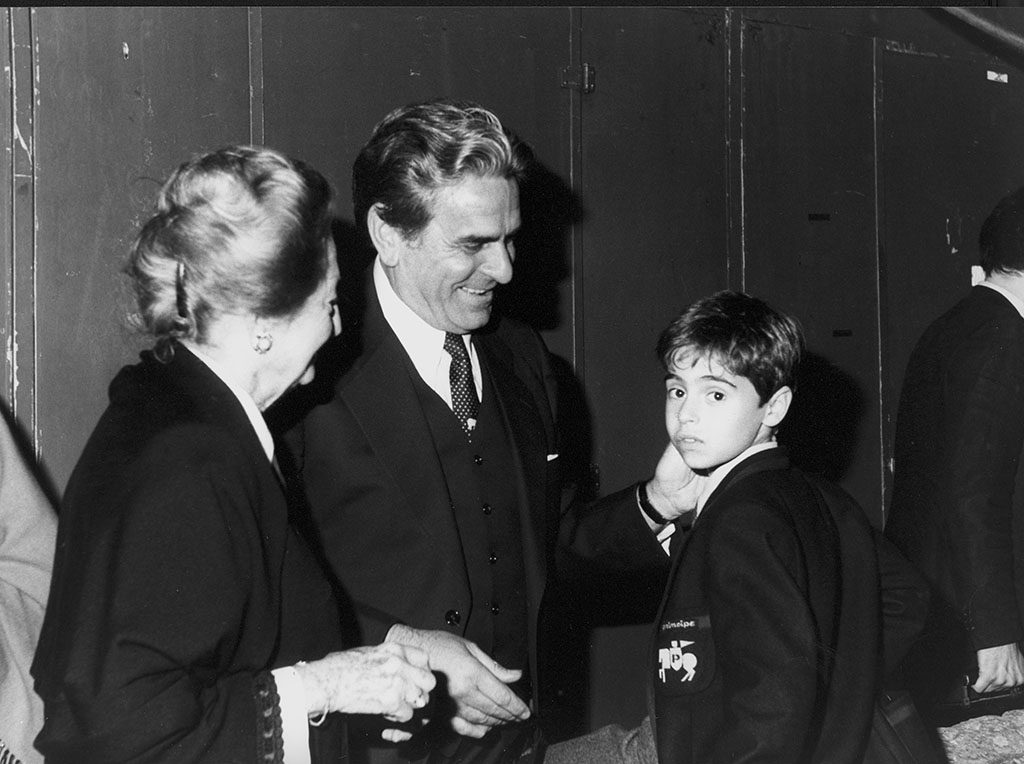Music for Everyone
The Fiesole School of Music

Having grown tired of bureaucratic inertia, in 1974, Piero Farulli decided to take action so that future generations would not miss out on the riches music had to offer: the great music of Beethoven, Bach, and Berio. So, in March of that year, in two rooms of the Fiesole Philharmonic Society, which had fallen into disuse, Piero Farulli founded the Fiesole School of Music, a concrete embodiment of his cultural utopia. He also reactivated the Philharmonic and made it a privileged participant in his project.
With very few funds Farulli created a center that offered everyone, young and old, aspiring professionals and amateurs, the experience of making music. Without ever compromising the high standards necessary for professional musicianship — after only a few years the school would include advanced classes with Pavel Vernikov, Norbert Brainin, Natalia Gutmann, Maria Tipo, Roger Bobo, the Trio of Trieste — Farulli researched new teaching methods for young children along with an eye to lifelong education, which meant classes in music appreciation (learning to listen), choral groups, and piano duets (four-hands) to offer adults the possibility of entering into the harmonic intricacies of a Mozart symphony or a Brahms quintet. He wanted to offer the active experience of music, the development of critical, conscious listening.
Italian orchestras were made up of a high ratio of foreign instrumentalists to fill all the chairs, but conservatories did not provide any specific preparation for orchestral playing, and the best Italian instrumentalists looked down on the idea of playing in an orchestra. In 1980, Farulli decided to root out the ignorance and lack of professionalism at the base of this situation. Reminded that his own orchestral experience had benefitted him so richly in cultural terms, he went on, with the help of European funds, to design the first professional training course for orchestral musicians: a very linear and complex didactic itinerary. First of all, young musicians had to master their instruments technically and delve into the realm of orchestral repertoire. At the same time, they had to learn the basic art of ensemble playing. That is why being part of a chamber music group must go hand in hand with the discipline of orchestral playing. This cultural revolution saw as protagonists some of the greatest names in the field of orchestral and chamber music, including the Trieste Trio, Franco Petracchi, Giuseppe Prencipe, Vinko Globokar and of course, Piero Farulli, who bequeathed the cultural heritage of the Quartetto Italiano to the new generations. By dismantling old prejudices, he placed music and the absolute respect for this art at the center of the training; rather than musicians and orchestral players, there are only musicians, all dedicated to making music together, as Abbado said to his young colleagues of the Mahlerjugend Orchester.
In the continual spirit of renewal, striving to reach even higher cultural and professional levels, the Fiesole School of Music became a pilot program, going on to become a model looked upon with admiration in Europe, distinguished for its innovative spirit and high standards, which have allowed its students to become members of the most famous orchestras, from La Scala to the Berliner Philharmoniker, and for its unmistakable culture of making music together.




